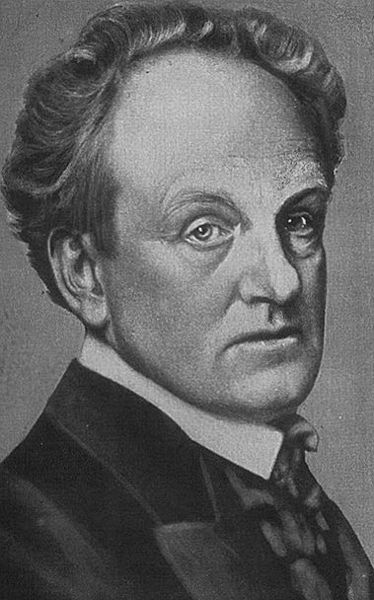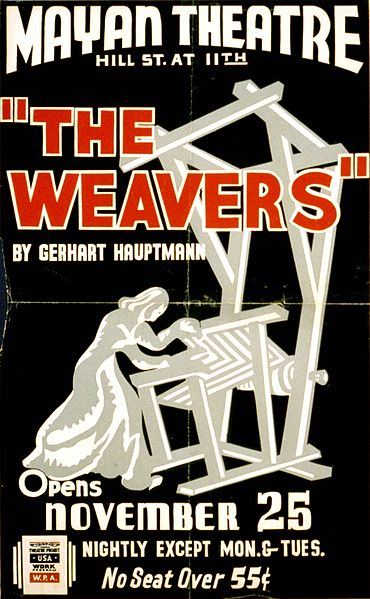<Back to Index>
- Astronomer Friedrich Wilhelm Herschel, 1738
- Dramatist Gerhart Hauptmann, 1862
- Prime Minister of Great Britain William Pitt, 1st Earl of Chatham, 1708
PAGE SPONSOR


Gerhart Hauptmann (15 November 1862 — 6 June 1946) was a German dramatist and novelist who received the Nobel Prize in Literature in 1912.
Hauptmann was born in Obersalzbrunn, a small town of Silesia, now known as Szczawno-Zdrój and a part of Poland. He was the son of a hotel keeper. After attending the village school he went to the Realschule in Breslau, after which he was sent to learn agriculture on his uncle's farm at Jauer. Having no taste for country life, Hauptmann soon returned to Breslau and entered the art school with the intention of becoming a sculptor. There he met his life-long friend Josef Block. He later studied at the University of Jena and spent the greater part of 1883 and 1884 in Italy. In May 1885, Hauptmann married and settled in Berlin and, devoting himself entirely to literary work, soon attained a reputation as one of the chief representatives of the modern drama.
In 1891 he moved to Schreiberhau in Silesia. Hauptmann's first drama, Before Dawn (1889) inaugurated the naturalistic movement in modern German literature. It was followed by The Reconciliation (1890), Lonely People (1891) and The Weavers (1892), a powerful drama depicting the rising of the Silesian weavers in 1844 for which he is best known outside of Germany.
Hauptmann's subsequent work includes the comedies Colleague Crampton (1892), The Beaver Coat (1893), and The Conflagration (1901), the symbolist dream play The Assumption of Hannele (1893), and an historical drama Florian Geyer (1895). He also wrote two tragedies of Silesian peasant life, Drayman Henschel (1898) and Rose Bernd (1903), and the dramatic fairy tales The Sunken Bell (1896) and And Pippa Dances (1906).
Hauptmann's marital life was difficult and in 1904 he divorced his wife. That same year he married the actress Margarete Marschalk, who had borne him a son four years earlier. The following year he had an affair with the 17 year old Austrian actress Ida Orloff, whom he met in Berlin when she performed in his play The Assumption of Hannele. Orloff inspired characters in several of Hauptmann's works and he later referred to her as his muse.
In 1911 he wrote The Rats. In 1912, Hauptmann was awarded the Nobel Prize in Literature, "primarily in recognition of his fruitful, varied and outstanding production in the realm of dramatic art."
During the First World War Hauptmann was a pacifist. In this period of his career he wrote several gloomy historical allegorical plays, such as The Bow of Odysseus (1914), The White Saviour (1912 – 17), and Winter Ballade (1917). After the war, his dramatic abilities appeared to diminish. He wrote two full length plays that are similar to the early successes: Dorothea Angermann (1926) and Before Sunset (1932). He remained in Germany after Hitler's Machtergreifung and survived the fire storm of Dresden. His last work was the Atriden-Tetralogie (1942 – 46). His works in German were published by S. Fischer Verlag.
Hauptmann died at the age of 83 at his home in Agnetendorf (now Jagniątków, Poland) in 1946. Since the Polish communist administration did not allow Hauptmann's relatives to bury him in Agnetendorf (although even the Soviet military government had recommended it), his body was transported in an old cattle wagon to occupied Germany more than a month after his death. He was buried near his cottage on Hiddensee.